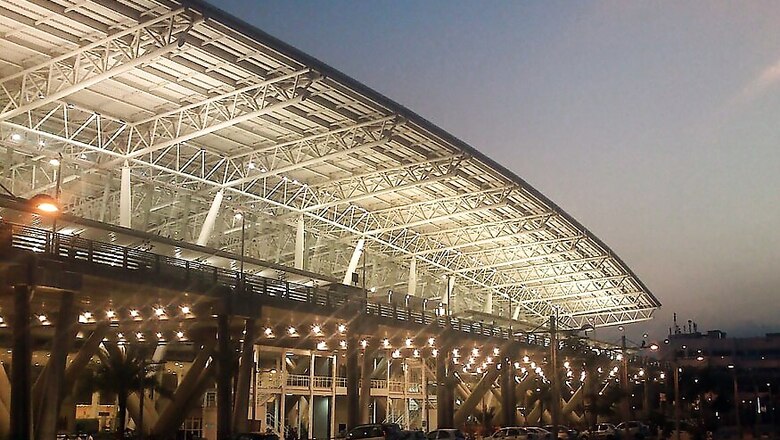
views
New Delhi: Aviation regulator DGCA on Tuesday issued show cause notices to the directors of the Chennai and Ahmedabad airports after it found that some critical areas were not being maintained as per its safety standards, sources said.
The inspection of the airports was done earlier this month by the Directorate General of Civil Aviation (DGCA). "It was found during the inspection that both the airports failed to meet DGCA safety standards in certain areas," a source told PTI.
G Chandramouli and Manoj Gangal, directors of Chennai and Ahmedabad airports respectively, were issued the show cause notices on Tuesday and the aviation regulator has asked them to respond within 15 days, the sources said.
The action comes in the backdrop of multiple aircraft landing incidents at various airports during monsoon season.
In the notices, copies of which are with PTI, the DGCA has stated that "critical parts of the aerodrome required to conduct safe aircraft operations" at both airports "are not being maintained in accordance to the regulator's requirements".
The notice issued to Chandramouli stated that non-frangible material such as "concrete slabs, open concrete trench and chambers" were found on the primary runway as well as the secondary runway of the Chennai airport during inspections that were conducted on July 2 and July 3.
"Several large loose stones were found on RESA (Runway End Safety Area)" of both the ends of the primary runway at the Chennai airport, according to the notice.
RESA is a specific area at both the ends of the runway which is kept clean of all non-frangible objects so as to limit consequences if a plane overshoots or undershoots the runway during landing or take off. The primary runway strip of the Chennai airport also failed the friction test, as per the DGCA notice.
"At a distance of 290 metre-474 metre from the beginning of runway 25, the (average friction) value is below minimum friction value of 0.34 " as specified in the DGCA regulations, the notice read.
A value less than 0.34 means the runway is slippery for an aircraft to land. Runway 25 is the primary runway of the Chennai airport.
"Several AGL (aeronautical ground lighting) were also found unserviceable during the inspection like, TWY (taxiway) edge lights, obstacle lights provided on all PBBs (passenger boarding bridges), aircraft hangars and over the SMR (surface movement radar)," the notice to the Chennai airport director said.
The notice to the Ahmedabad airport director Gangal said the runway friction test reports for a seven month period -- December 2018 to June 2019 -- were considered for analysis and it showed "downward trend in friction values below maintenance planning level and at a few locations, it has gone below the minimum level".
The Ahmedabad airport has one runway and its number is RWY 05/23. It was inspected by the DGCA on July 3 and July 4.
While the Aerodrome Manual mandates that runway friction test should be carried out every month, the DGCA, after analysis of six months of airport runway data, found that this "frequency of friction test is not maintained".
The notice to Gangal added,"Concrete items, bitumen waste, electrical trenches/main hole, drainage open holes are lying on the runway strip." "Runway 05 surface conditions are rough near taxiway B and becoming wet frequently due to ground water seepage," the notice said.
Earlier this month, the main runway at the Mumbai airport was shut for more than three days after a SpiceJet plane from Jaipur veered off it while landing amid heavy rainfall on July 1 night and got stuck in the adjacent grass area.
On June 30, another SpiceJet plane from Bhopal veered off the runway at the Surat airport due to heavy rainfall and wind, while on July 2, another plane of the airline veered off its path on the runway while landing at the Kolkata airport, damaging four runway lights.
Four senior executives of SpiceJet were issued show cause notices by the DGCA on July 4 after a special audit team of the aviation regulator, which probed multiple landing incidents involving the airline, found lapses on their part.
On July 2, an Air India Express flight coming from Dammam had a tail strike while landing at the Calicut airport.
Another Air India Express flight veered off the taxiway after landing and got stuck in soft ground at the Mangalore airport on June 30 and on the same day, a GoAir plane coming from Bengaluru had a tail strike while landing at the Ranchi airport.
Twelve pilots were grounded by the aviation regulator earlier this month for the incidents.














Comments
0 comment